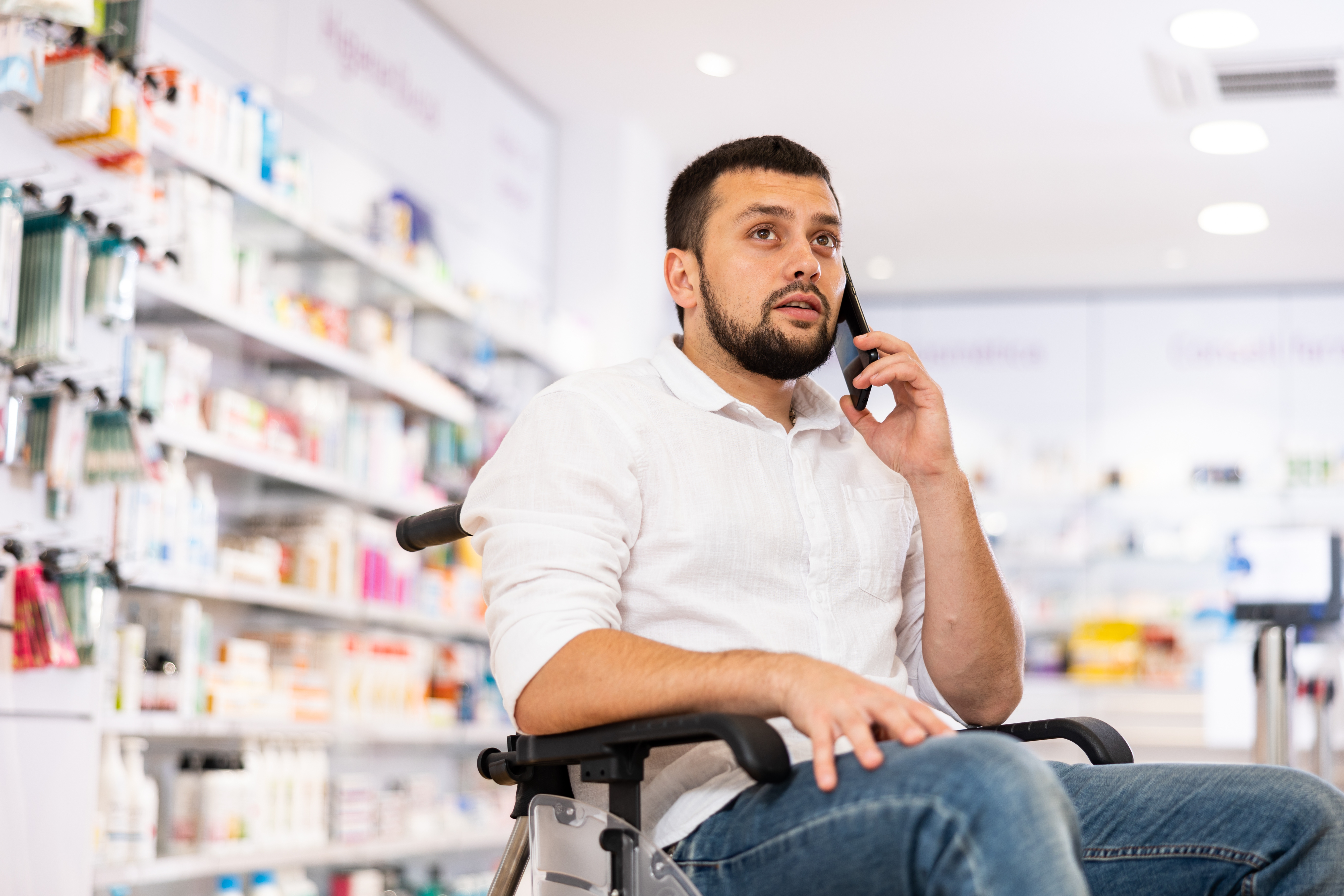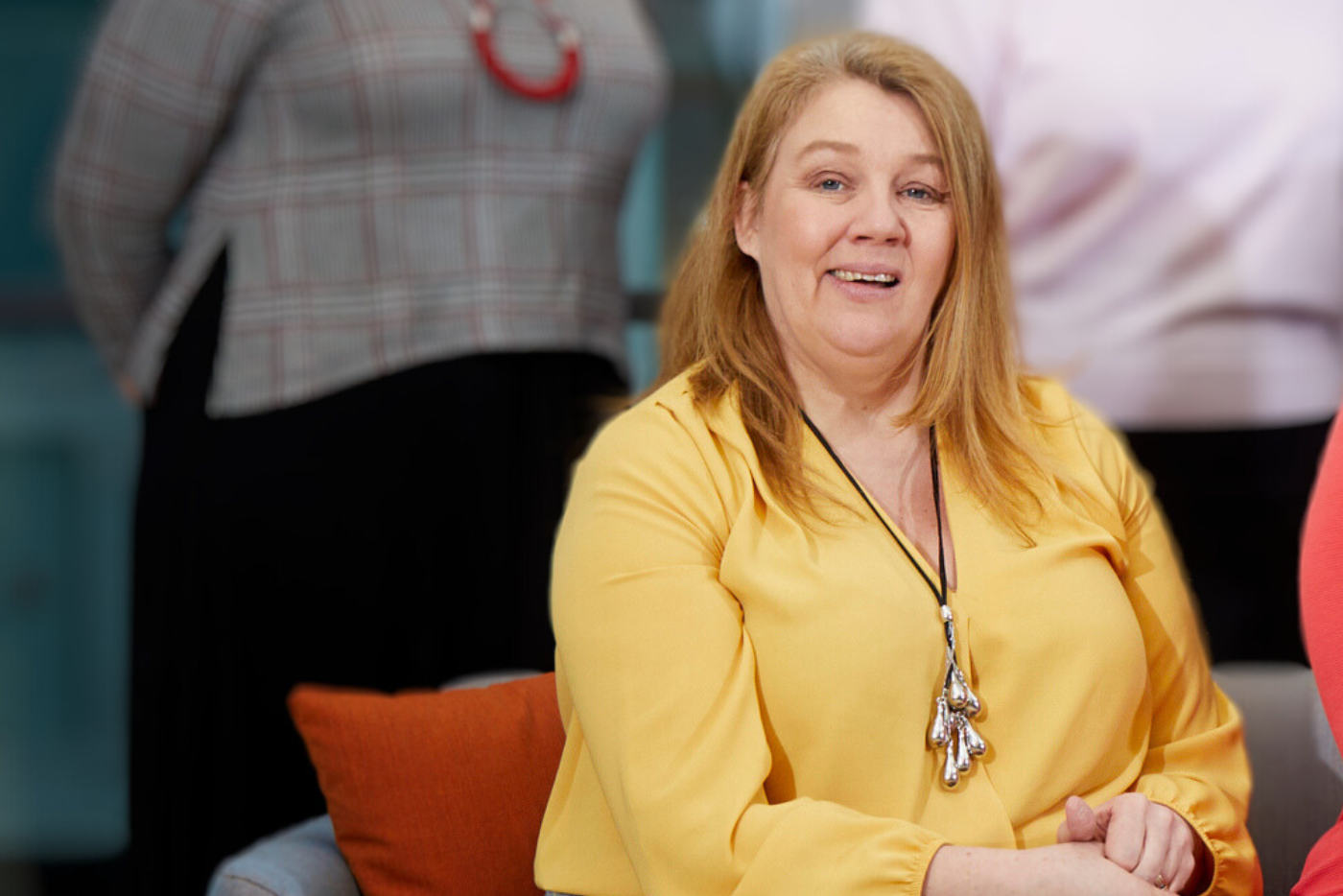
Disability at work and university
This page looks at how to manage a mental or physical disability as a pharmacy student, trainee or pharmacist.

Anita Cawley, a retired pharmacist, shares how her Cerebral Palsy didn’t hold her back from having a successful career, and how workplaces can support colleagues with disabilities.
Her 30-year career has spanned industry, hospital and community pharmacy and latterly she co-founded her own clinical research organisation. Born with Cerebral Palsy she is no stranger to the impact workplace attitudes can have on someone’s ability to achieve and sees the strength of diversity in the workplace. In this story, she shares insight into how the pharmacy profession can support colleagues with disabilities.
Being born with Cerebral Palsy posed challenges but I was never going to let it define me. In fact, it spurred me on to be best I could be and show the world what I could do. However, my story could have been very different without an army of supporters to spur me on and pick me up when times got tough: from my parents who pushed for my integration into mainstream education, to the many professionals who recognised not only my enthusiasm but by also my potential. With a disability you tend to have to go the extra mile just to be recognised as equal and what helps you do that is when others go out of their way to support you.
My years in special education taught me that everyone has a gift that should be celebrated. In some ways my gift, alongside academic ability, was my disability but not everybody saw it that way, especially in the mid-1980s. I was devastated when the pharmacy regulator expressed major reservations regarding my ability to register and practice. Looking back, I understand some of where this came from. Community pharmacy was, and remains, physically demanding. You regularly dash between the counter and dispensary and climb to access high shelves. Not the best environment for someone with mobility issues. However, for me community pharmacy wasn’t the only option of a career in pharmacy, and I needed people who could see beyond the barriers to the possibilities and didn’t just dump my dreams in the ‘too difficult basket’ too quickly. Thankfully, throughout my career I have had more supporters than detractors, including hospital consultants, chief pharmacists, my local pharmacist, the lecturers at John Moore’s University, colleagues and mentors who rallied round and gave me the strength not to give up on my dreams.
Even to this day I remember the words of encouragement from those supporters. Before I embarked on my pharmacy studies, they said “Go get your degree and prove them wrong!”. And then the hiring manager who spotted my leadership skills and expertise in adverse drug reaction reporting helped me realise my ambitions in that area. That’s not to say it’s all been a bed of roses; I’ve had struggles with my mental health and have pushed myself beyond the limits just to prove I’m good enough. I’m also my own worst critic and understand how the gremlins of doubt can completely undermine everything you set out to achieve, creating uncertainty about your purpose in the world.
Throughout my career I’ve always treated people as individuals, focusing on what they can do rather than what they can’t do. There is strength in diversity, and we all have something to bring to the party, with or without a disability. We should embrace everyone’s uniqueness.
There is, rightly, a big focus now on EDI and it can be quite daunting to navigate for pharmacy managers and leaders, but often small changes can make a big difference. Take time to notice how the working environment impacts on a colleague with a disability, talk to them about adjustments that would help, and reinforce their value to the team.
There’s no greater pleasure than helping others to be the best they can be and watching them grow – it gives you and them such a sense of purpose.
There’s also no shame in asking for support yourself. You can’t be there for others if you don’t prioritise your own mental and physical health and wellbeing, so don’t be afraid reach out.
Life will always throw you lemons but finding a way to make lemonade and supporting others to do the same is what gets you through.

This page looks at how to manage a mental or physical disability as a pharmacy student, trainee or pharmacist.

Experienced pharmacy leader, Shilpa, shares the skills that she has picked up throughout the years that help to ensure good wellbeing in the workplace.

On this page, we look at some common challenges your colleagues may face, and ways you can support them through these difficulties.